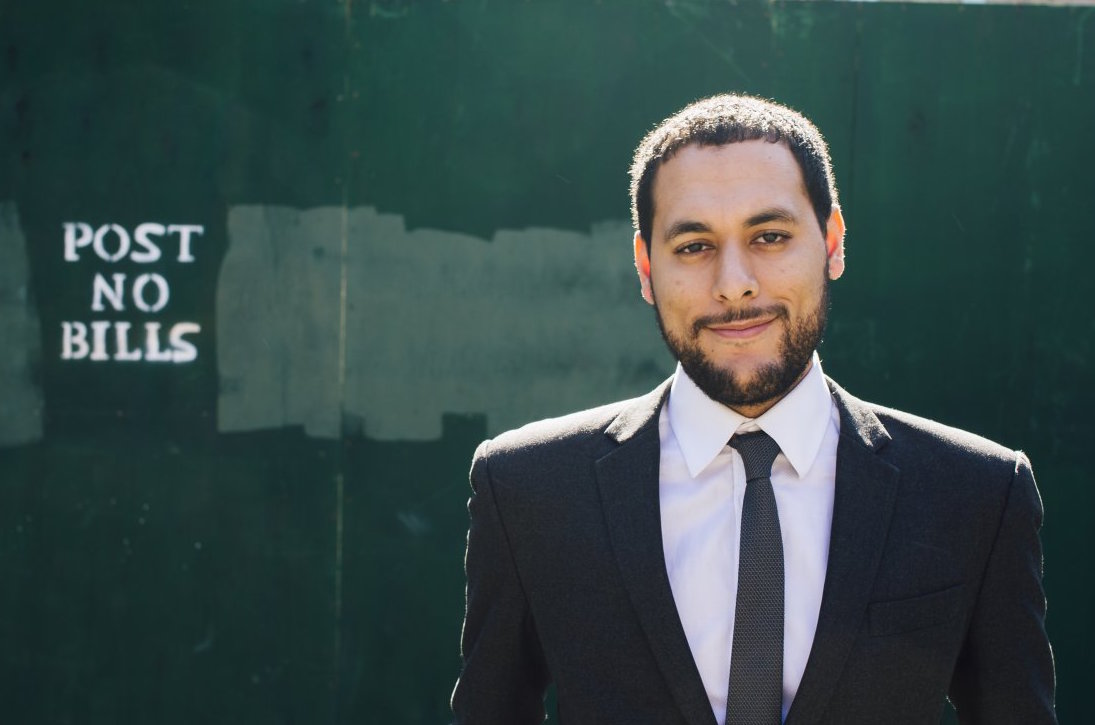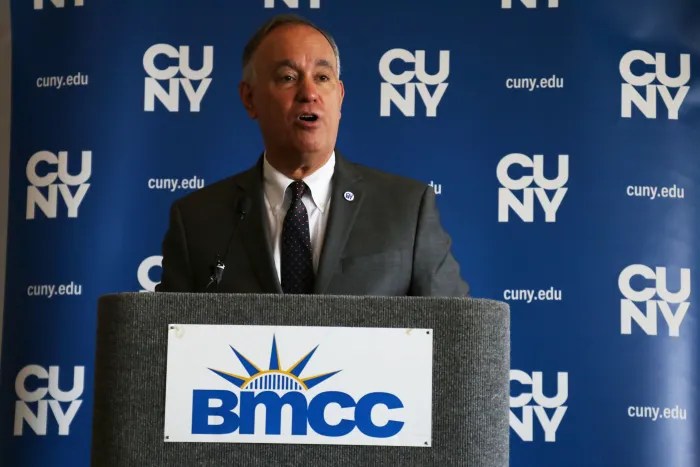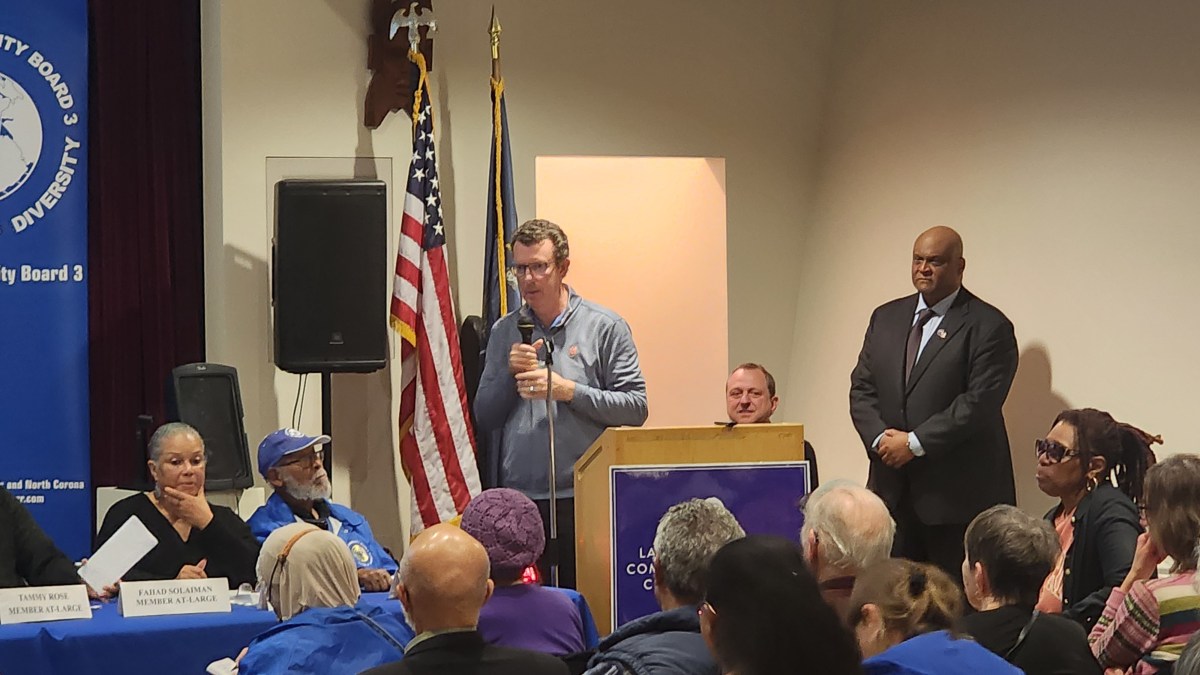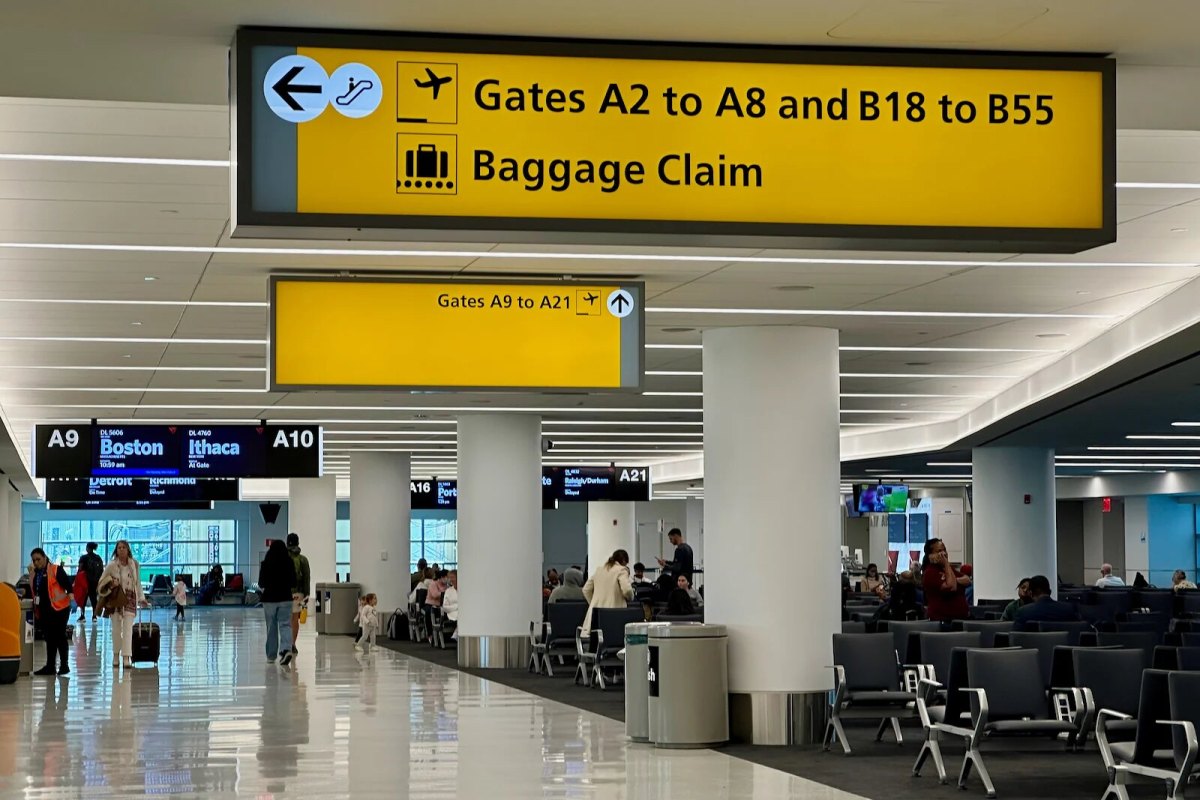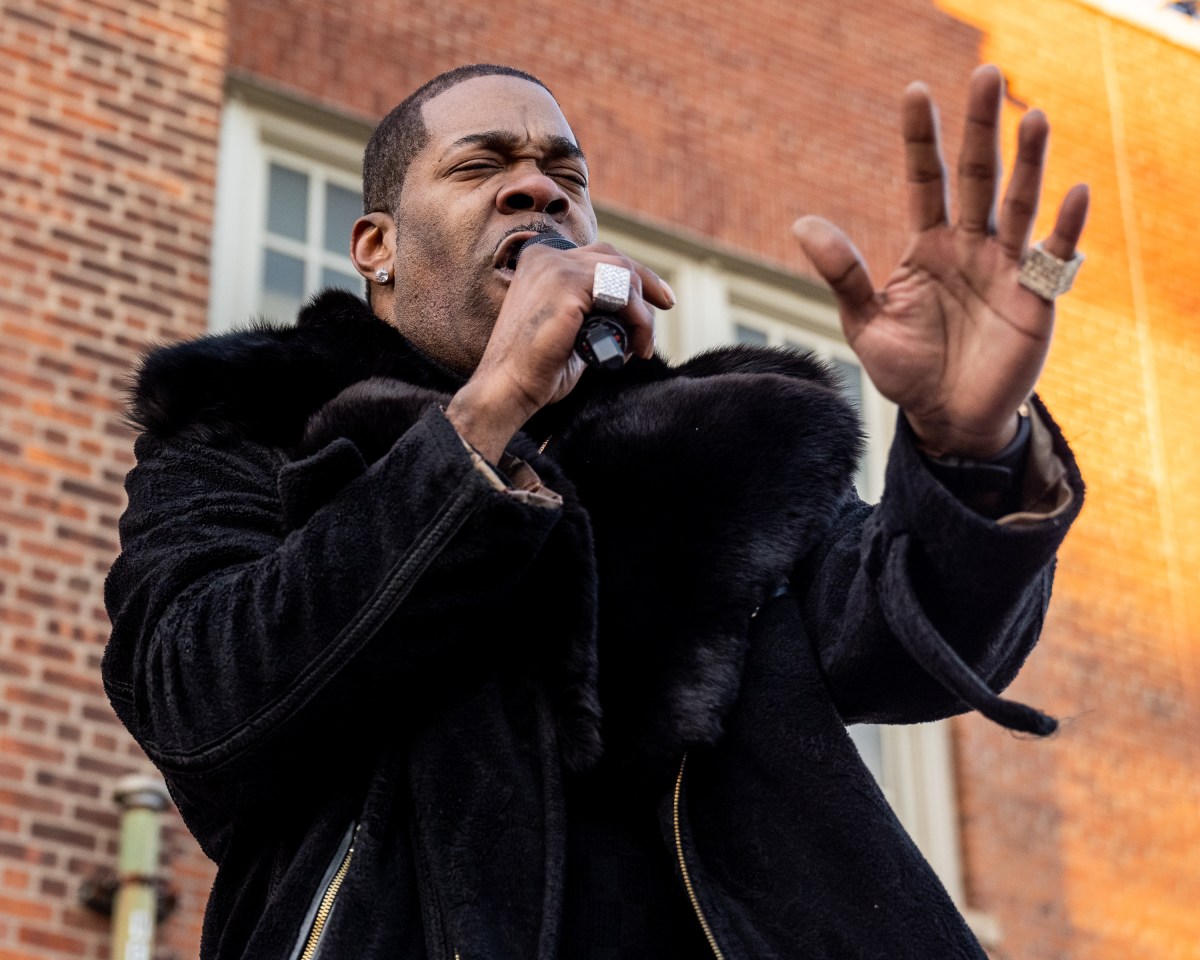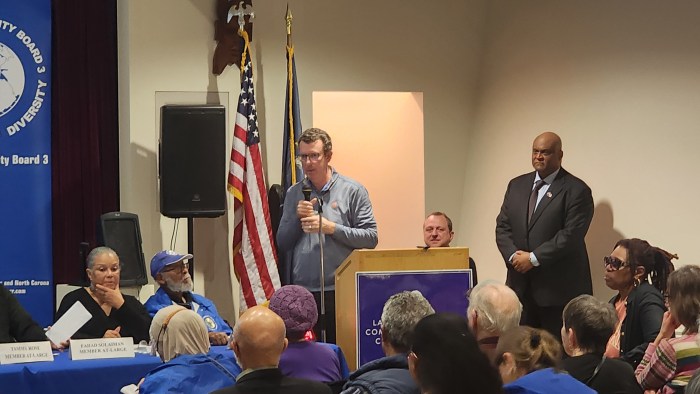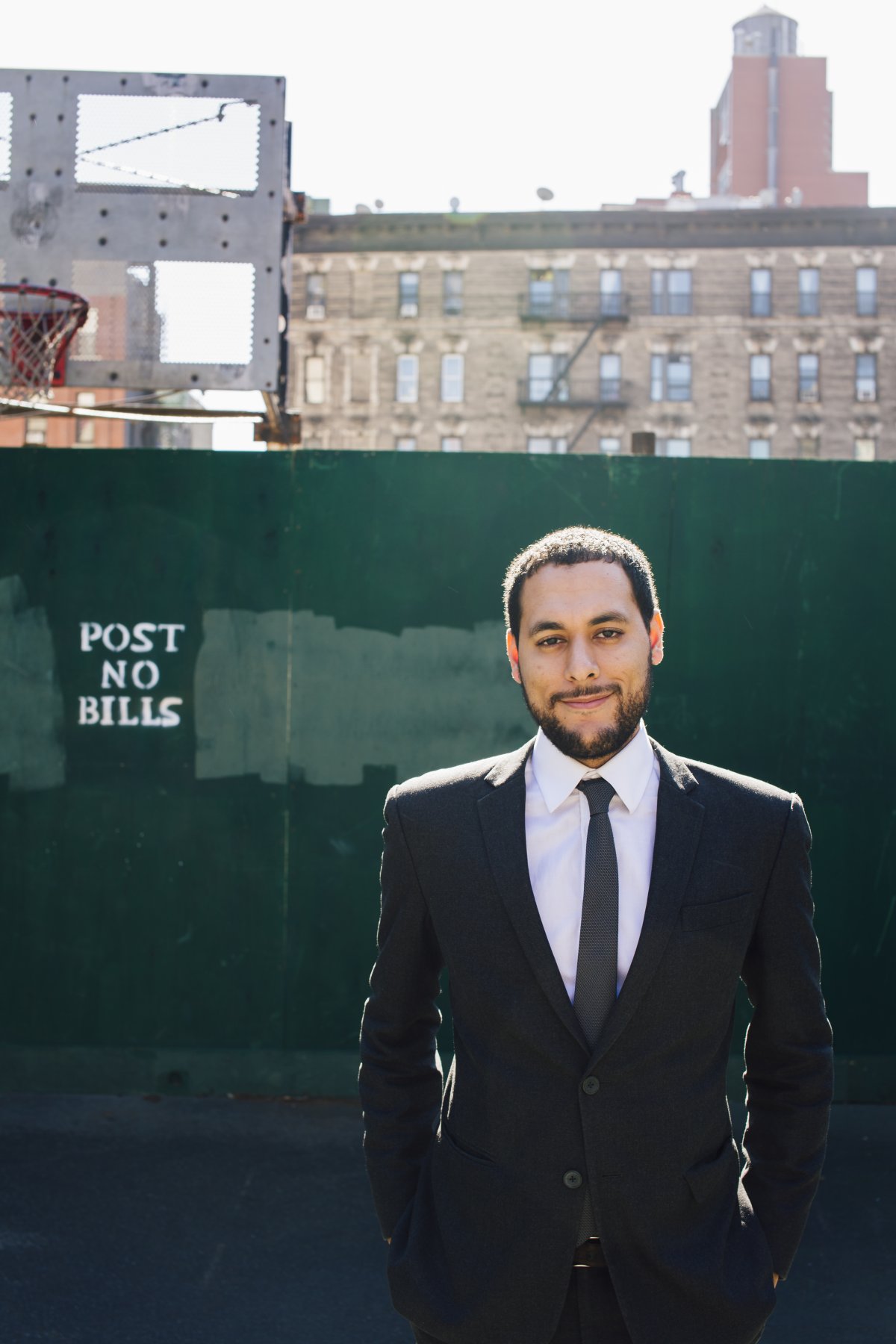
BY YUKIE OHTA | What makes someone go into politics? As a person who has had little involvement in politics on any level, but who has lately become interested in getting involved on the local level, I was curious to know what compels someone to seek to enter public service.
In my quest to find out, I asked Christopher Marte out to coffee the other day, so I could pick his brain. Marte is running for City Council in District 1, which covers most of Lower Manhattan, including Greenwich Village, the East Village, Noho, Soho, Tribeca, the Financial District, Chinatown, Two Bridges and his home turf, the Lower East Side, plus Governors Island — and, for some odd reason, Brooklyn Bridge Park and the piers surrounding it — comprising a most ethnically, linguistically and financially diverse constituency.
I first met Marte at a Soho community event and was fascinated by this young newcomer who has decided to run against a two-term incumbent in one of the most influential districts in New York City. A lifelong resident of District 1, Marte, who is 28, is the youngest of four children. He was born on the Lower East Side to working-class parents from the Dominican Republic. His father owned a bodega on Rivington St., and his mother was a nurse and teacher before coming to New York.
Marte attended P.S. 20, a diverse public school on Essex St. that has a dual-language Mandarin program. That started him on a journey of multicultural encounters. By the time he graduated from college, he had lived or studied in seven different countries and spoke Chinese, in addition to English and Spanish.
During high school, Marte lived in Japan and then Hungary through AFS (formerly American Field Service). In Japan, his first study-abroad experience, Marte lived in a rural community and commuted two hours a day to and from Osaka, a large city, to study.
“I kind of fell in love with it,” he said.
That experience led him to take off again, this time for Hungary, where he enrolled in an arts program to study European architecture. For his application, he sketched one of the sculptures from the Elizabeth St. Garden.
Marte went on to receive a B.A. in global studies from Long Island University Global, a program that sent him to study around the world. His first stop was Costa Rica, where he interned for a senator and worked on a United Nations plan to clean up land mines on the Costa Rica-Nicaragua border.
His next stint was in the Dominican Republic, where he did field research on the often-contentious relationship between Dominicans and Haitians, two very different peoples sharing the same island. Then it was on to Ecuador, where he did research on indigenous people’s rights.
After that, it was China for a year, where Marte studied language, history and culture, as well as politics. He then backpacked from Shanghai to China’s western border with Pakistan, his conversational Mandarin coming in handy — until he ventured farther westward, through regions where people spoke many local dialects.
“The trip changed my world,” he said. “I learned a lot about myself, not knowing what tomorrow was going to bring.”
He ended his trek by staying with a Kazak nomadic family in a yurt atop a mountain in Pakistan, just as monsoon rains hit. He witnessed large-scale destruction below due to mudslides on the mountain. He was lucky to survive. On his last stop before returning to New York City in 2011, Marte studied at the London School of Economics, delving deep into mathematics and finance.
While finishing up school in New York, Marte interned for the Brooklyn District Attorney’s Office, and then worked in the private sector at Castle Oak Securities, a minority-owned firm, where he saw firsthand how money flows and how markets work. He then put this knowledge to work as an investment analyst at IBM Retirement Fund. Throughout this time, Marte also served on the young professionals board at Defy Ventures, a nonprofit organization that helps formerly incarcerated individuals start businesses. Marte has a personal tie to the organization: His brother Coss had served time in prison, and Defy Ventures helped him open a gym — ConBody — on the Lower East Side that hires ex-convicts as personal trainers. Within three years, it became a highly profitable venture.
Marte’s life took a turn when the Black Lives Matter movement began. After he heard about a 35-year-old unarmed Mexican man being shot by police in Pasco, Washington, in early 2015, Marte flew out West and interned at a law firm to help undocumented individuals, mostly farm workers, apply for green cards. He often found himself sitting between the white lawyers and the Mexican families they represented.
“When my parents came here, my dad was undocumented,” he said. “It really hit home, seeing these families trying to do something with their lives.”
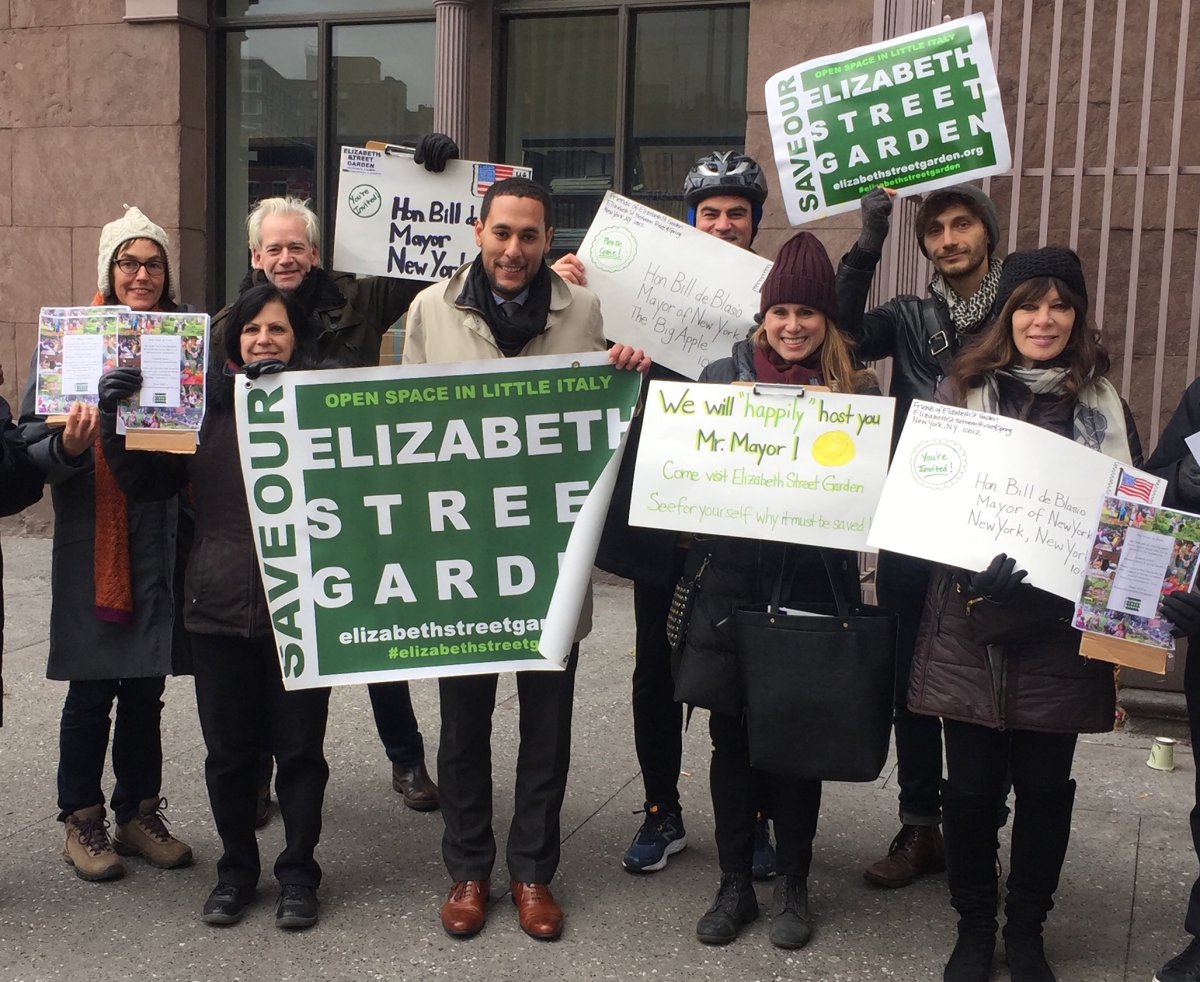
Inspired by this experience, Marte again moved back to New York City, planning to go to law school and become an immigration lawyer. While studying for the LSAT, Marte coached and mentored the “Twin Dragons,” the M.S. 131 co-ed basketball team in Chinatown, and volunteered at the National Mobilization Against Sweatshops and the Elizabeth St. Garden in his spare time.
Also during this period, Sheldon Silver, the then-speaker of the state Assembly, was convicted of federal corruption charges. Marte did not know much about local politics then, but knew about Silver from the news, and thought something needed to be done about rampant corruption in politics. This was the turning point, when his life moved toward politics.
In February 2016, after briefly flirting with running for Assembly, Marte decided to run for Democratic State Committee — an unpaid party position — knowing nothing about how to wage a campaign. He grabbed a tote bag and clipboard and knocked on doors, went to every community event, stood at subway stations. In the end, he lost in a three-way race, but only by 1.9 percent, and ended up getting more than 2,000 votes.
Undeterred, the very next day and ever since, he has attended community meetings and sought to educate himself about issues affecting Downtown residents.
“Two thousand people voted for me for a reason,” he said he thought to himself.
He also reflected on what he had learned thus far in politics. Basically, he saw politicians being reactive — but not proactive — and he also found that the district’s constituents lacked a platform to voice their issues.
“This is the most basic thing that any politician can provide,” he said, with exasperation. “Have a town hall meeting, understand the issues, and try to address them. It’s not that hard.”
He noted disapprovingly that, in her seven-and-a-half years in office, the incumbent, Councilmember Margaret Chin, has not held a single town hall meeting.
In early 2016, Marte saw the deed restrictions lifted for Rivington House, the AIDS hospice and nursing home right across the street from his childhood home. A developer planned to redevelop the historic former school building as high-end condominiums. This was when Marte decided that, if he was going to run for office again, it had to be for City Council, because this is where real change happens at the local level in New York City.
“I just think that you have to be really proactive to protect places like the Rivington House and Elizabeth St. Garden,” he said.
Marte supports saving the Little Italy Garden, while Chin is the prime advocate for developing the site with senior affordable housing.
In December 2016, Marte filed to run for Council. By March, he had raised a stunning $50,000.
“Key people in the community donated,” he reflected. “I think that really shows that the support is there — not only financially. People are willing to believe that I’m the guy to win the seat. It was amazing.”
He is trying to raise as much money as possible early on, so that when summer comes and his campaign gets into full swing, he will be able to spend more time going door to door, meeting people to listen to their concerns.
“You meet amazing interesting people,” he said, “people you don’t see every day because you’re going to every door.”
Marte is running a very neighborhood-specific campaign, though there are a few issues he sees as important for constituents district-wide, such as development, for one.
“This whole district has become a construction site,” he stated. “Whether you’re in FiDi, or N.Y.U. or Two Bridges or on the Bowery, you always hear and see construction. It’s not being against development, it’s asking what developers are giving back to the community. Is this type of development good for the community? These things are not usually discussed in the early stages. I think that’s the one big issue.”
For the most part, though, Marte finds that people are generally concerned about what is going on in their children’s schools and on their blocks, or if their affordable grocery stores will survive.
“That’s how you make a connection,” he said, “always knowing what’s happening or about to happen,” and then giving residents access to information about their neighborhoods, so that they can help change things themselves.
Understanding what a block or neighborhood is going through is key to reaching voters. Marte grew up hanging around his father’s bodega, where he would meet everyone from his community, from working people and homemakers to the homeless. He also lived through the first wave of gentrification on the blocks just east of the Bowery. So, he understands the issues now affecting the blocks even further east, where residents are currently being displaced and established businesses are being replaced by new ones.
I asked Marte whether or not he sees tensions between Downtown old-timers and newly arrived residents — if they bring conflicting issues to the table.
“When the fight is local, you’re able to bring everyone together,” he said.
He gave the example of 462 Broadway in Soho, where L’Ecole, the restaurant of the International Culinary Center, used to be. Developers want to convert most of the building into a department store of sorts.
“All residents have concerns about this,” he said.
People who live on Crosby St. treasure its quiet. And all residents, regardless of when they moved into that area, are against big, bright store signs lighting up the street at night and trucks unloading merchandise at late hours and having even more sidewalk traffic than before.
“Nobody wants that,” Marte said.
As a neighborhood historian, I could not help but ask Marte if there is a particular local place that he misses. He told me he regrets that the open-air market that used to be at Chrystie and Grand Sts., at the B/D subway station, is gone. He remembers it as a place where Dominican, Chinese and Italian locals came together to buy produce and interact.
“My parents used to go there to do their vegetable shopping,” he recalled. “I used to carry the shopping bags for them, zigzagging through all these vendors crowded in one lot. Rats running around. People yelling, negotiating prices.” Today the space is a soccer field.
Marte’s grassroots campaign has attracted many people previously uninvolved in local politics, as seen by the fact that most of his donors had never contributed to a political campaign before. It’s also interesting that 25 percent of his donors so far are artists. He feels that many people are eager to get involved in local politics, but simply don’t know how to do it.
“You really see people taking up a call to arms,” he explained. “I feel like there has been a real awakening. In my generation, there was no roll call to go into politics — unless you were brought up in it or there was a personal reason to do it. The reason I did it was because we had one of the biggest political corruption cases in the history of the state. And growing up across the street from Rivington House and seeing how that whole transaction happened, that affected me personally. That made me say, ‘O.K., I want to do something.’ And now, people are also personally affected by what is happening on the national level. They are really feeling like they have to do something.”
Marte’s background as a native of the Lower East Side melting pot, his international education, his private- and public-sector work experience, his volunteer work, and his passion for social justice make him a person who can communicate with people from all walks of life and can effectively turn issues into action. But he has a long road ahead to the September Democratic primary election.
As Marte got up to head back to his campaign office, he turned and said, “It’s going to be an interesting summer.”
Ohta is founder and director, The Soho Memory Project



